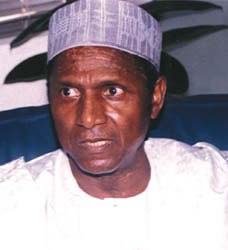Date Published: 10/19/09
Amnesty fallout: Nine States to benefit from oil money
 |
Musa Yar'Adua |
Nigeria plans to plough 10 percent of the money it makes from Niger Delta oil back into the region in a bid to end a rebellion that has badly hit output, a report said Monday.
The head of Nigeria's state oil company confirmed to AFP that talks were being held on ways to give back a share of the oil wealth to the delta states where rebel groups have cut production by a third over the past three years.
The Financial Times newspaper said the initiative, if approved by parliament, would signal a new phase in government efforts to forge a lasting peace in the key production area of the world's eighth largest oil exporter.
But the newspaper said the plan had to clear expected opposition from other Nigerian regions.
Emmanuel Egbogah, President Umaru Yar'Adua's special advisor on oil, told the newspaper that the president supported transferring wealth from the national oil company to delta communities.
Government spokesman were not immediately available, but the head of state-owned Nigerian National Petroleum Corporation (NNPC), Mohammed Barkindo, confirmed to AFP that discussions were being held to find ways to give a share of the oil wealth to the nine oil-producing Delta states.
"We are looking at the various options on how we can empower the producing communities without violating the current laws," said Barkindo.
The NNPC holds Nigeria's majority stake in joint ventures operated with international oil companies. Currently 13 percent of oil revenue goes to the oil producing states.
A special government appointed technical task force last November recommended that the 13 percent be hiked to 25 percent and gradually increased to 50 percent. The government is yet to respond.
Egbogah said he intended to add the proposal to reforms the government hopes to enact by the end of the year, which would also impose tougher terms on oil companies.
The plan for the delta was "a serious one, a major one, something quite revolutionary", Egbogah told the business daily.
Plans to transfer part of government equity is the latest of a raft of measures the Yar'Adua administration has tried to end the 'oil' rebellion.
It has offered an amnesty to militants and most militant leaders have accepted it and laid down their arms. But the most prominent group, the Movement for the Emancipation of the Niger Delta (MEND) has spurned the offer, threatening to resume the "oil war".
Rebels and activists have long demanded a greater share of the oil that generates 80 percent of government revenue.
The offer would apply to all communities in oil-producing areas of the delta who would receive cash benefits, delivered through a trust-style mechanism which they could then pool for social projects.
"These benefits will flow directly to them," Egbogah said. "Every community, whether blind or deaf or dumb, every citizen will say: 'I own a part of this business'."
MEND on Friday ended a 90-day ceasefire and warned the oil industry to expect new and widened attacks. Attacks by the group, have cut daily production by up to a third of pre-2006 levels.
Nigeria now produces around 1.6 million bpd of of oil compared to 2.5 million bpd it used to pump before the onset of the unrest in 2005.
|